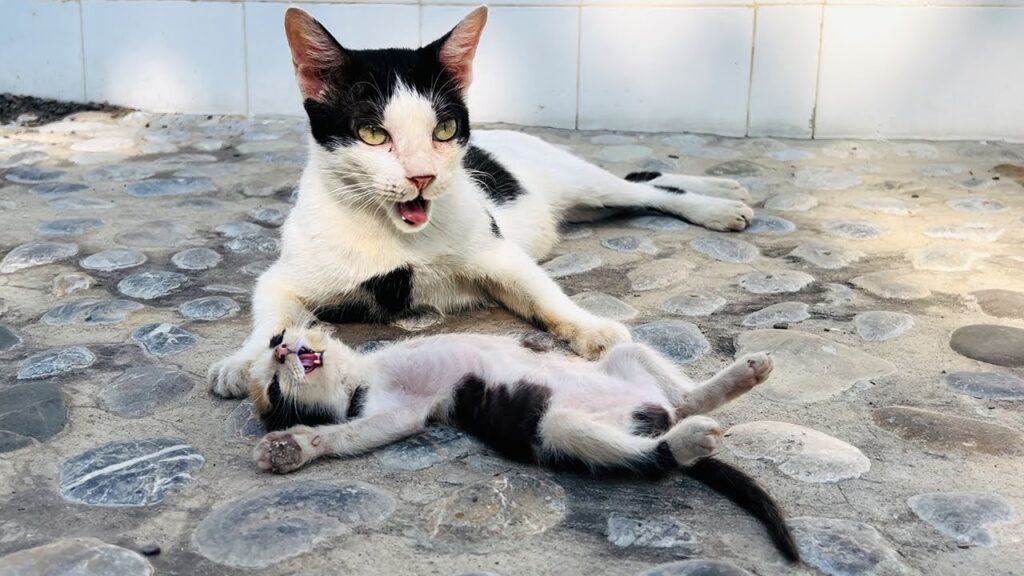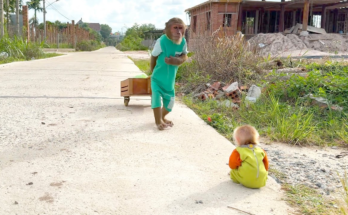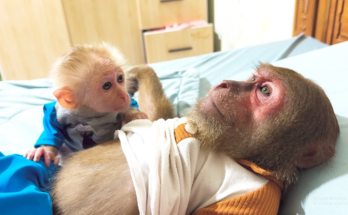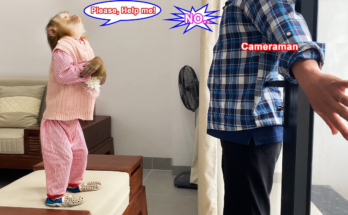In the shadow of an old wooden fence, the mother cat lay curled protectively around her tiny kitten. Her fur was ragged from years of battling the streets, her body thin from countless days of hunger, but none of that mattered now. All that mattered was the fragile life pressed against her chest.
The kitten was barely a week old, its body small enough to fit in the palm of a human hand. Each breath was a struggle—tiny lungs wheezing, ribs rising and falling far too quickly. The mother cat nudged her baby with her nose, licking its head as if her warmth and love alone could heal it.
Her green eyes, once sharp and alert, glistened in the soft light. The tears welling there were not from the cold wind or dust—they came from the ache of helplessness. She had lost kittens before, to hunger, to sickness, to the dangers of the world. She could not bear to lose this one.
The day was growing colder. She tucked her body tighter around her baby, purring low and steady, hoping the sound might give her little one strength to keep fighting. Every weak mewl pierced her like a thorn.
Then came the sound of footsteps. A shadow fell over them, and the mother cat looked up, her body tense. A human knelt down, eyes soft with compassion. Their hands were gentle, wrapping the tiny kitten in a warm cloth. The old cat let out a low cry—half protest, half plea.
The human placed a bowl of food before her, the smell rich and inviting. Hunger gnawed at her, but her gaze stayed fixed on the bundle in the human’s arms. Something in their voice, in the way they held her baby, told her this was not danger. This was hope.
As the kitten was carried away toward warmth and care, the mother cat sat in the cold, eyes wet, heart heavy but praying in her own silent way. The tears that slid down her fur now carried a wish—that her little one would survive and live the life she never could.
I can also create a more cinematic, vivid version with stronger sensory details so it feels like a rescue scene in a film.



